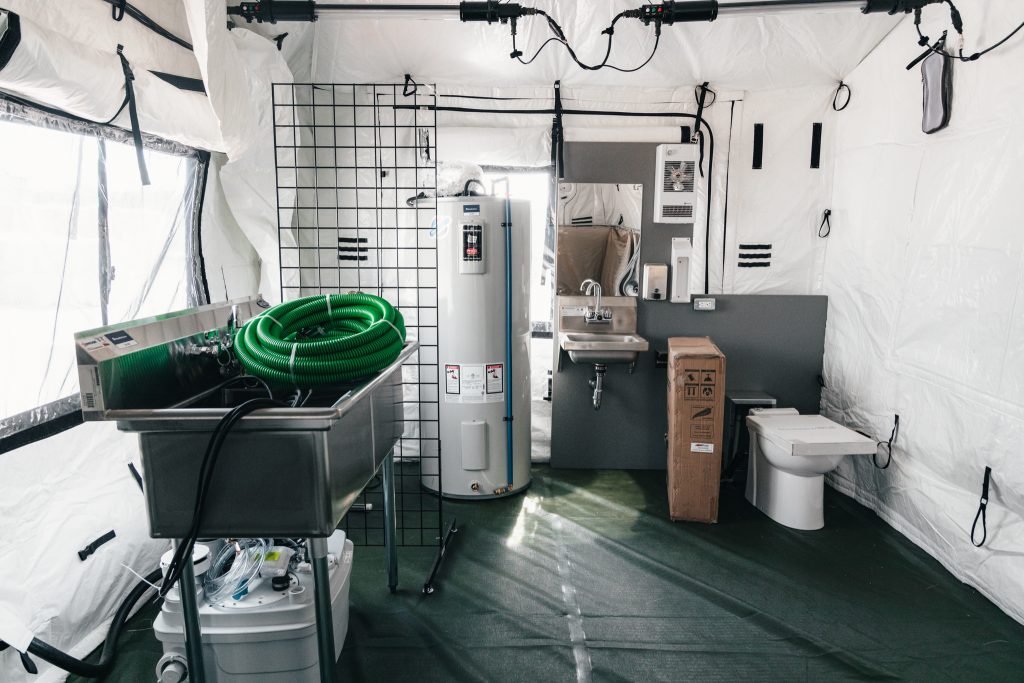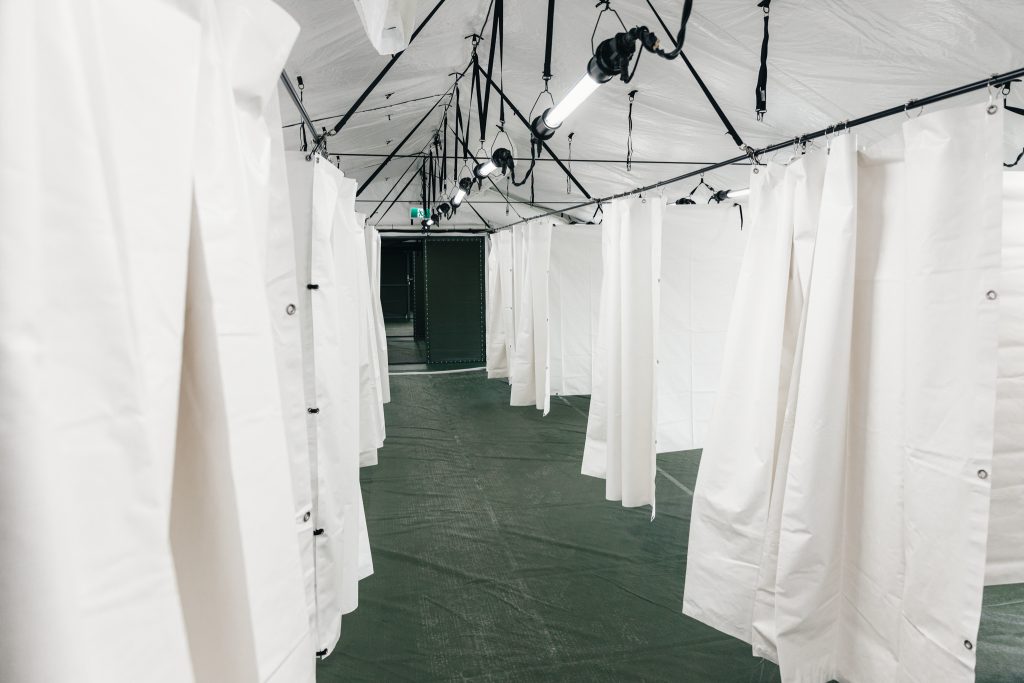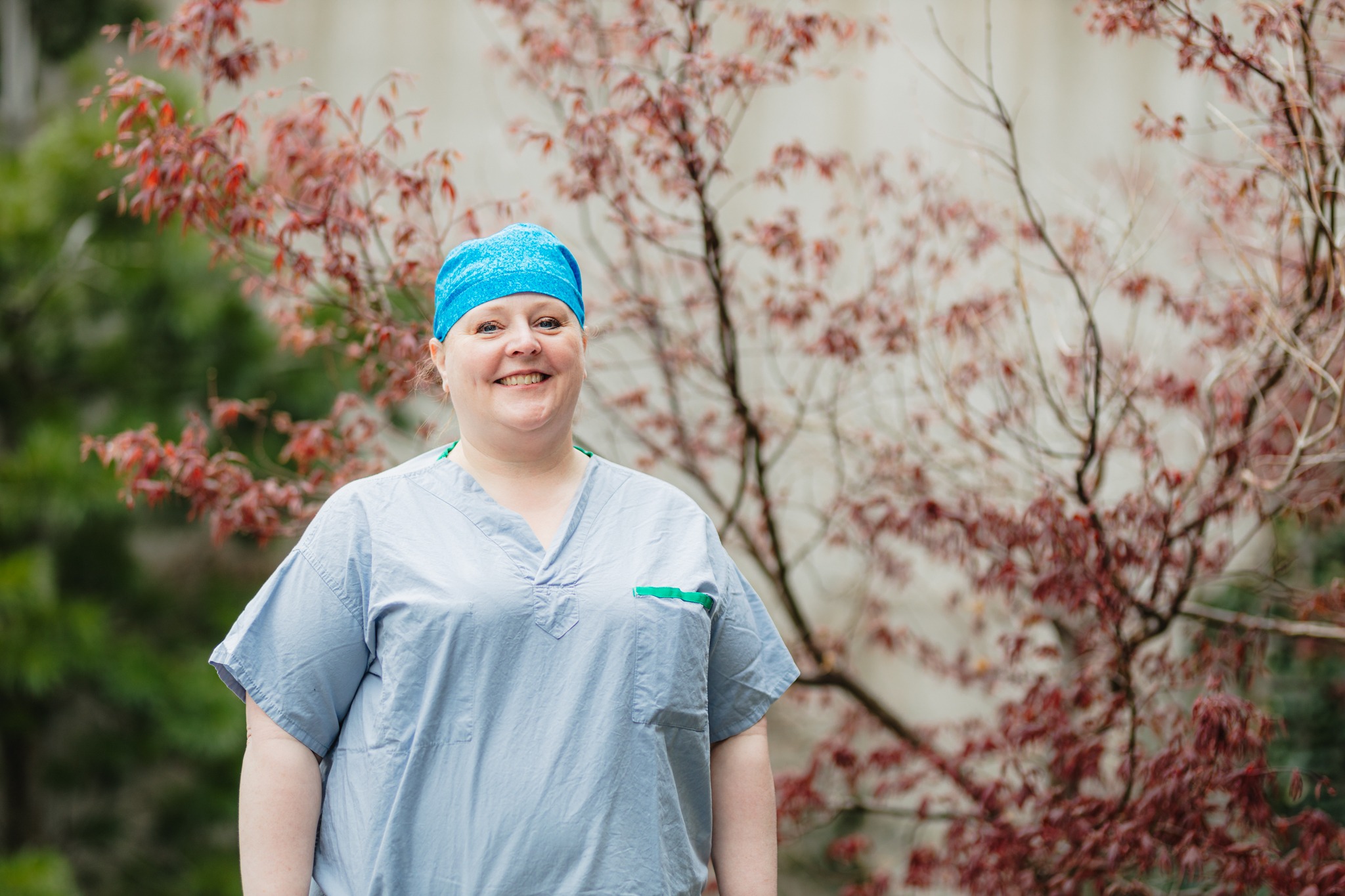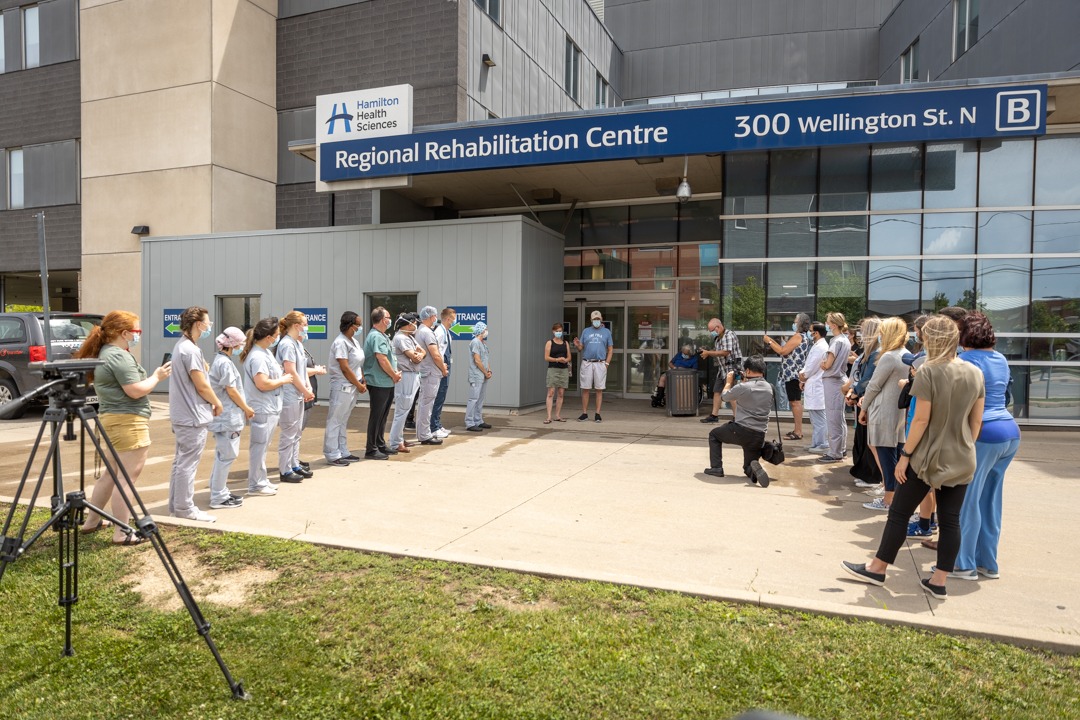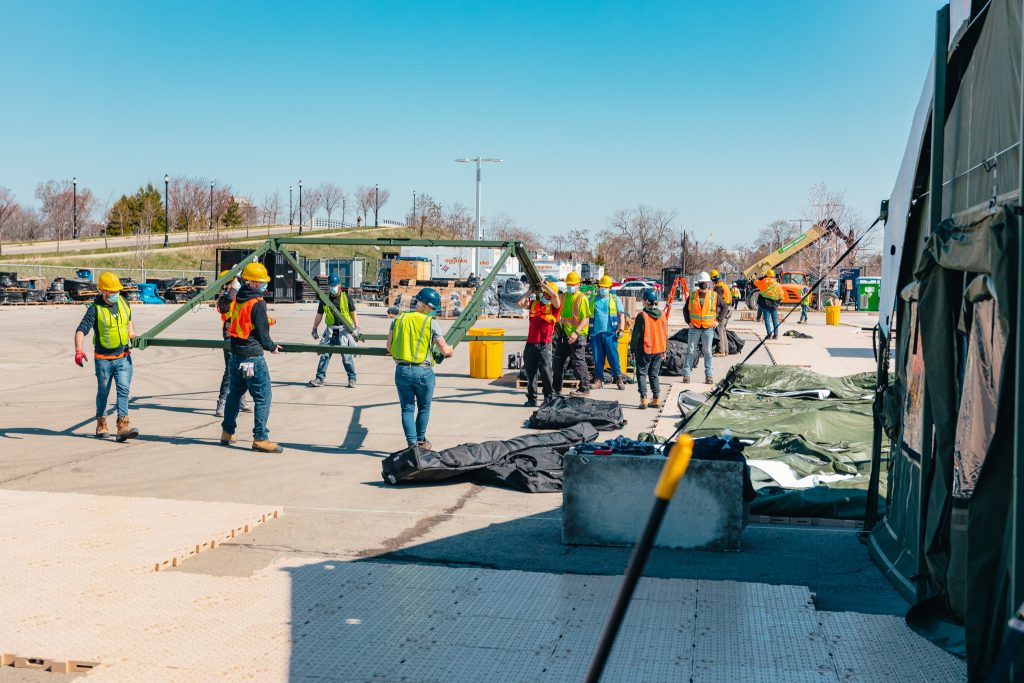
What does it take to build a mobile health unit?
In April, construction started on the Hamilton Mobile Health Unit (MHU) located across the street from the Hamilton General Hospital site of Hamilton Health Sciences (HHS).
The MHU will help alleviate pressure on the provincial healthcare system caused by the third wave of the COVID-19 pandemic by caring for patients with acute medical needs and making room in the hospital for patients who are sicker and require more intensive care.
The MHU isn’t an intensive care unit, but it will be equipped to care for adult medical patients who are approaching discharge or only require a short hospital stay (3 – 5 days).
The MHU will be ready to receive its first patient at the end of May, but a lot of work has to be completed before then. Keep reading to find out what it takes to build a mobile health unit.
Procurement
When the federal government realized the extreme pressure the COVID-19 pandemic was placing on provincial and territorial healthcare systems, they procured the shelter system, up to 10 days of supplies, some equipment and installation services from Weatherhaven. A world leader in providing rapidly deployable and redeployable shelters and camp systems, Weatherhaven is the vendor responsible for installing, maintaining and decommissioning the Hamilton MHU, as well as the one operated by Sunnybrook Health Sciences Centre.
Planning
After receiving support from the federal government in the form of the MHUs, the provincial Ministry of Health requested that HHS take on operational responsibility for the MHU for the Ontario West Region. Sunnybrook was tasked with operationalizing the MHU for Ontario East.
HHS struck an interdisciplinary Steering Committee to oversee all aspects of the MHU implementation, as well as working groups dedicated to Facilities and Infrastructure, Operations, Health Human Resources and Access. Operating plans that address everything from the number of patients the MHU will accommodate, to infection prevention and control, to the human resources needed to staff the MHU, and much more have also been developed. The MHU is a field hospital, which means that many of the features and functions found in a physical hospital building – such as nutrition services, labs and waste management – need to be in place as well.
Construction
Construction on the Hamilton MHU began in early April. The MHU is made of durable, waterproof, fire-retardant PVC coated fabric, supported by an aluminum frame. It is insulated for all weather conditions and equipped with temperature control to manage air conditioning and heating systems. As part of the construction, Weatherhaven has installed electrical, plumbing and HVAC systems. HHS’ Facilities and Infrastructure Working Group worked with another contractor to install a fire-safety system, nursing call bells, communication systems and 24/7 security systems.
Furniture, Supplies and Equipment
Construction on the MHU is expected to be completed before the May long weekend, at which point HHS will begin moving in furniture, supplies and equipment. This includes patient beds and linens, laptops and keyboards, lamps, a portable 2D ultrasound, shelving units, fridges and much more. There are hundreds of items that need to be in place before the first patient arrives at the MHU. Some of the equipment needed for the MHU has been provided by Weatherhaven, with HHS supplementing the rest.
People
The MHU can be fully constructed and fully equipped, but without trained staff to run it, it cannot receive patients. MHU staff will include physicians, nurses, and allied health practitioners such as a physiotherapists, occupational therapists and social workers, as well as healthcare aids, business clerks and flow coordinators. The MHU team will also consist of other support functions, such as housekeeping, food services, security, biomedical services, facilities management, waste management, labs, imaging, medication management, finance, decision support, patient records, admitting and more.
Many people in many different roles are needed to provide support and care for patients in the MHU. HHS has committed to providing all of the support staff and some of the clinical staff the MHU needs to run, and is working with regional, provincial and federal partners to recruit clinical staff from across Ontario and Canada as needed. Everyone who works in the MHU will receive training in HHS policies, procedures, documentation systems and care protocols before the MHU opens.

